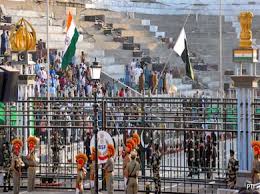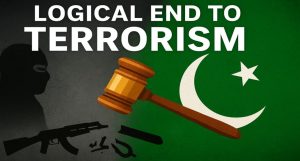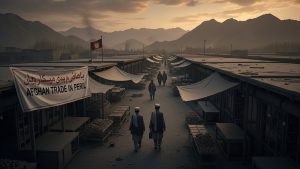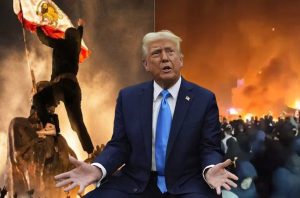There’s an old saying that resonates deeply with me these days, echoing constantly as I watch events unfold across our border: the thief is often the one shouting loudest. It feels painfully true when I look at India. For what feels like an eternity – stretching back decades – my country, Pakistan, and indeed other parts of the world, have felt the tremors of violence, I believe India has actively sponsored. And yet, with staggering consistency, it’s India’s voice that rings out loudest, pointing fingers at Pakistan after every tragic incident, seemingly never offering a single shred of concrete proof. It’s a wearying, frustrating reality – living under the shadow of accusations while knowing, deep down, that the accuser’s own hands are far from clean.
This isn’t just politics; it feels personal. It’s a deliberate strategy I’ve watched unfold time and again: an attack happens, shockwaves ripple, and before the victims are even counted, the narrative is set in stone – Pakistan is to blame. The recent heart-wrenching attack in Pahalgam, Indian-occupied Jammu and Kashmir, saw 26 lives tragically lost. Our government, reflecting national values and Islamic teachings, unequivocally condemns terrorism in all forms. But the familiar, frustrating pattern emerged instantly. As the DG ISPR, Lt Gen Ahmed Sharif Chaudhry, rightly questioned, how could an FIR be registered within 10 minutes of the incident, already assuming cross-border involvement, given the remoteness of the attack site – a 30-minute distance from the nearest police station over hilly, unfriendly terrain? It speaks volumes about a pre-determined script rather than an objective investigation. It feels like India’s reflex action: distract everyone from its own long, troubling history of fanning instability. This meticulously crafted narrative, amplified by Indian media and social media accounts linked by the DG ISPR to propaganda predicting and then glorifying previous attacks in Pakistan (like Mianwali and Karachi), protects India’s image while making us the scapegoat.
A Long, Painful Shadow: India’s History of Sponsoring Trouble in Pakistan
This isn’t new; it’s a wound festering for decades. The undeniable evidence pointing towards Indian support for groups tearing at our nation, particularly in Balochistan – the funding, training, and weapons allegedly funnelled by Indian intelligence – is chilling. How many innocent Pakistani lives have been lost due to these proxy wars? The DG ISPR highlighted specific examples, like how after the Jaffar Express bombing, the BLA spokesperson was glorified on multiple Indian news channels, with Indian media even being the first to air BLA-shot footage. Yet, we face the relentless noise from India’s media machine shouting “Pakistan!”
What truly disturbs me is the reports the DG ISPR also referenced: the phenomenon of fake encounters where India uses illegally held Pakistani prisoners, killing them and then projecting them as terrorists or infiltrators. It feels less like counter-terrorism and more like the cynical manufacturing of ‘evidence’ to fuel their narrative, conveniently distracting from India’s own human rights violations in Indian-occupied Kashmir. Further adding to the current tension, the DG ISPR stated Pakistan possesses credible intelligence that India, post-Pahalgam, has tasked its proxies to undertake more terrorist acts across Pakistan. It feels like a constant, targeted campaign, one the DG ISPR statistically quantified, noting 3,700 terror incidents since just January 2024 attributed to India’s sponsorship, carried out, he argued, for short-term, myopic political objectives.
Beyond Our Borders: India’s Global Footprint of Instability?
And this shadow stretches far. Alleged Indian interference weaves through Afghanistan, Sri Lanka, and as the DG ISPR noted, this issue of state-sponsored terrorism is now transnational, affecting Canada, the US, and Australia too. Yet, India often wears the victim’s mask globally, while Pakistan, despite immense sacrifices (over 80,000 lives lost, nearly $500 billion economic damage), fighting terrorism, is cast as the villain. It’s a dangerously unjust inversion of reality.
Pahalgam: The Same Old Song, Just a Newer Tragedy
Pahalgam feels like déjà vu. The speed of blame, the lack of evidence – it echoes Pulwama, which, as the DG ISPR reminded us, was politically exploited by India to justify changing Kashmir’s status. Now, he suggested, Pahalgam is being similarly used to undermine Pakistan’s hard-won counter-terrorism successes and economic recovery efforts. The very narrative itself seems contradictory; the DG ISPR pointed out the inconsistency between Indian reports of “indiscriminate firing” and the simultaneous push of a religiously motivated narrative. How can both be true?
The Media Drumbeat: Amplifying Accusation, Silencing Truth
The Indian media acts like a propaganda arm, saturated instantly with evidence-free accusations post-Pahalgam. They weaponise tragedy, deepening mistrust between nuclear neighbours – a dangerous game. The DG ISPR highlighted the irony in the “Islamist terrorism” narrative being pushed, given that in Pahalgam, local Muslims owned the hotels, drove the taxis, cooked the food for tourists, and were among the first to protect victims and, tragically, among the first to die. He rightly questioned if labelling the entire community is part of a systematic hate agenda. It points to what the DG ISPR described as India’s tactic: internalising external problems (like Kashmir) while externalising internal ones (like its own extremism and terrorism issues).
The Uncomfortable Truth: Looking at India’s Actions
This constant deflection masks India’s alleged sponsorship of terror, interference abroad, and actions in Kashmir. It’s hypocrisy. We, Pakistan, have bled profusely from terrorism, much of it traced back, I believe, to Indian sponsorship. To be labelled the sponsor by the state, causing so much suffering, is bitter.
It’s time the international community looked past the noise. That’s why Pakistan, as both the Prime Minister and DG ISPR stressed, demands an independent, transparent, and credible investigation into Pahalgam, based on mutually agreed Terms of Reference (TORs). Our call, the DG ISPR affirmed, is rooted in “strong reasons, empirical evidence, and facts”.
Tired of the Noise, Seeking the Truth
India’s relentless, evidence-free accusations are a deafening roar designed to drown out its history. We in Pakistan are weary, but not silent. We will continue demanding proof and accountability. As the DG ISPR confirmed, our armed forces are monitoring the situation carefully, vigilant across all terrains, and ready with countermeasures and decisive and assured actions to defend our sovereignty at all costs. At the same time, we seek peace and will not escalate the situation first. The nation stands united behind this resolve. The thief is making noise, but the truth persists. It’s time the world listened closely and demanded answers – and evidence – from the one shouting loudest.














